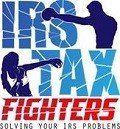As a 1099 worker, navigating the complexities of freelance or contract work can be both rewarding and challenging. While the flexibility of self-employment is appealing, it also comes with unique tax responsibilities that can lead to potential scrutiny from the IRS.
If you’ve received a notice from the IRS claiming you owe $10,000 or more or you are concerned about your tax obligations, contact our firm immediately for a consultation.
To help avoid potential IRS issues in the future, this article will explore your tax responsibilities as a 1099 worker and provide strategies to help you minimize the risk of audits.
Understanding Your Tax Responsibilities
As a 1099 worker, you are classified as self-employed, which means you have specific tax obligations that differ from traditional employees. Here are the key responsibilities you need to be aware of:
1. Accurate Reporting of Income: All income earned as a 1099 worker must be reported on your tax return, regardless of how small the amount was or whether you received a 1099 form from your client. The IRS requires comprehensive reporting of all earnings, and not submitting everything can result in significant penalties that could otherwise be avoided.
2. Quarterly Estimated Tax Payments: Unlike employees, taxes are not withheld from your payments as a 1099 worker. You are responsible for making estimated tax payments quarterly. Staying on top of these payments is crucial to avoid underpayment penalties and interest. This often gets overlooked, but coming up with your own system to make these payments will save you a major headache when it comes to filing your tax return.
3. Detailed Record-Keeping: Maintaining meticulous records is essential for accurately reporting your income and expenses. This includes tracking your invoices, saving any and all receipts, and documenting your business-related costs. Good record-keeping not only simplifies your tax filing but also provides the supporting documentation in case of an audit.
4. Deductions and Business Expenses: As a self-employed individual, you get the opportunity to deduct legitimate business expenses that can lower your taxable income. However, these deductions have to be extremely well-documented and should directly relate to your business operations. The IRS is known to closely scrutinize excessive or questionable deductions, so it’s important to stay within the bounds of what is legal.


